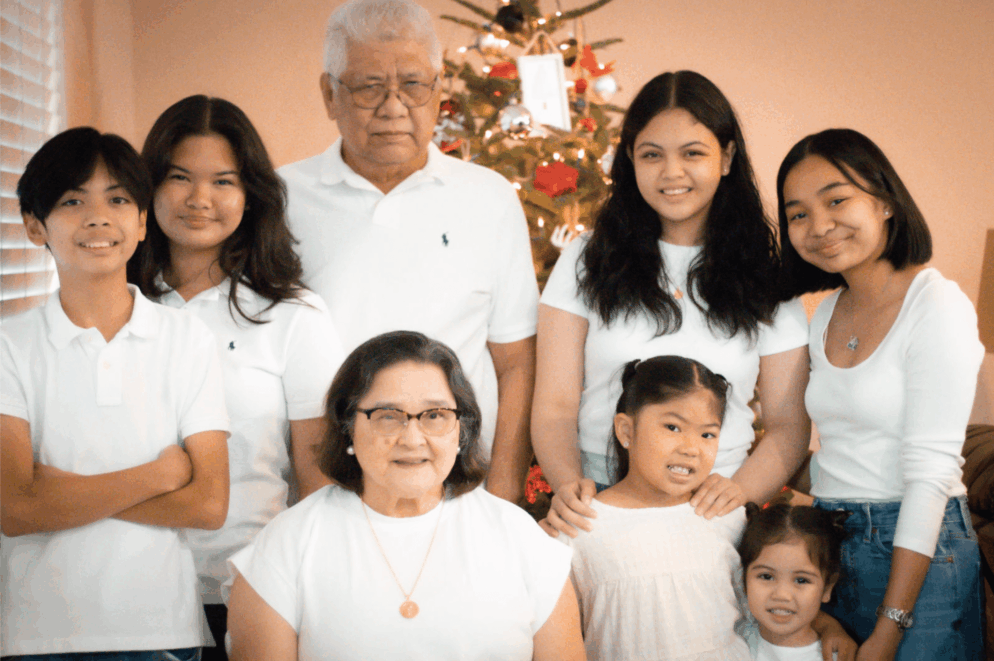I have been trying to answer this question recently: Where do household responsibilities fall on college or job applications? Right between “Leadership Experience” and “Skills,” perhaps? Or maybe they deserve their own category altogether? If a girl could only hope (comedically), I say they do.
If there is one thing I’ve learned as a first-generation immigrant and college student, it is that time doesn’t move in a linear direction—it stretches, folds, and warps. There is no neat 9-to-5, no “clocking out.” This summer, I am blessed with the opportunity to be a remote intern with SEARAC, so, in between meetings, you can find me doing dishes, sitting next to my great grandma, or explaining to my little cousin why she, an elementary schooler and US citizen, cannot yet be the President of the Philippines OR Korea.
This rhythm is not new; it has been the beat of my daily routines since my family and I arrived from the Philippines roughly six years ago. My closest high school friends knew that if I wasn’t doing homework or at a school event, I was most likely helping tidy up our kitchen on weekday evenings, dusting and vacuuming rooms on Saturdays, or switching out laundry loads on Fridays. Not glamorous, not résumé material, but very real.
And this summer? Everything got even more real. While I was in Washington, DC for SEARAC’s Leadership Advocacy Training (LAT)—striding through Capitol Hill in heels and through the East Coast humidity, scarfing down the greasiest, most filling burgers of my life for dinner, and riding the high of advocating to Senate staffers—my grandma was being admitted to the ER 2,000 miles away in California. She came home the day after I did, and since then, recovery has been a team sport.
Just before that, during finals week, my great-grandma, another foundation in our multigenerational household, was in and out of four different hospitals over the span of a month. While I was working on study guides at UC Davis early in June, even when I switched to policy summaries at the LAT conference room much later in the month, my family was juggling medical records and visitation schedules, switching between caring for my grandma AND my great-grandma. She came home right when I got back from DC, and slowly but surely, she is getting stronger.
The story of finding balance in pursuing my future and being there for my family is not a song I sing alone; it is the unspoken reality of so many immigrants like myself. We are building dreams on top of foundations our parents and grandparents built with calloused hands. The balance takes time management, tenacity, and resilience, making it (maybe a little tiring, but) all the more rewarding and beautiful.
Working with SEARAC this summer has made that balance feel a little less isolating. Advocacy, programming, and, most importantly, community: the work I am privileged to help with is not just about tasks on my to-do list; it is about being a part of something bigger than myself. SEARAC works to empower Southeast Asian American communities, which means that the stories I carry at home aren’t side notes; they are the heart of it.
Each time I hit send on an email or cross off a deliverable, I feel it– I am not just showing up for myself. I am showing up for my family, for my parents who pushed me to apply, for my cousins who cheer me on from the sidelines, and for the elders whose love and support are quiet but unwavering.
So no, you won’t find “human dish washer” or “family tech support” on my LinkedIn or résumé. But it is there in the gaps, in between bullet points, in the parentheses of who I am, and I am learning to let that count.
Tereese Elijah Dimaculangan is SEARAC’s Summer 2025 California Policy and Programs Intern through the UCLA Dream Summer Fellowship. She is a rising Sophomore at the University of California, Davis, where she majors in International Relations with a minor in Human Rights. She is passionate about advocating for social justice, particularly in policy areas that support marginalized communities, and is dedicated to using her skills to create positive change for underserved populations. You can email Tereese at tereese@searac.org.

